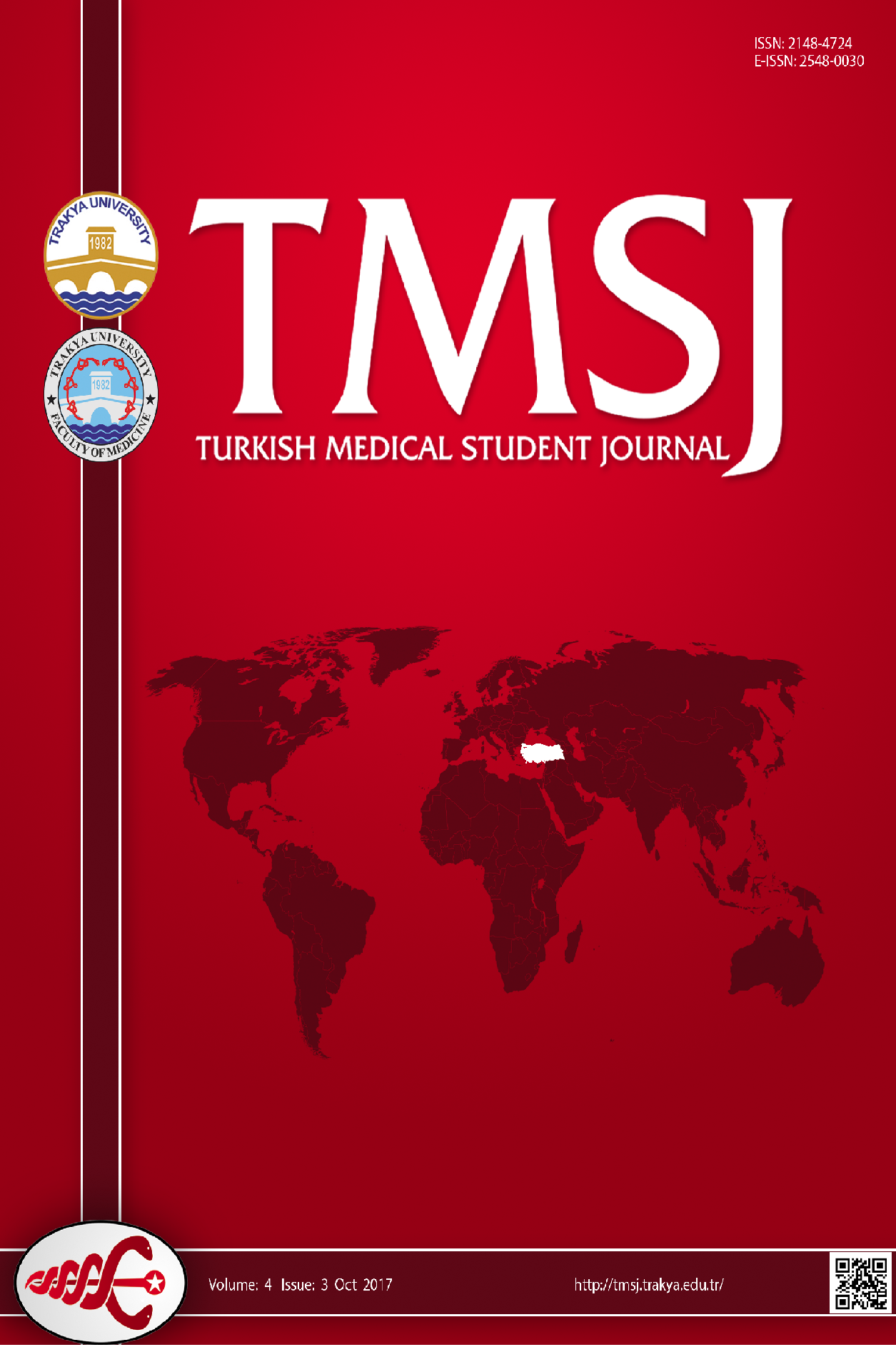
Turkish Medical Student Journal
Yazarlar: Iaroslav Sautkin
Konular:-
Anahtar Kelimeler:Pleurisy,Exudates,Pleurodesis
Özet: Aims: According to the data of the Russian Ministry of Public Health, in 2014, 46% cases of breast cancer were complicated by exudative pleurisy. In management of the complication, there are two treatment modalities: Pleurodesis induced by sclerosing drugs and immunomodulators, repetitive pleural aspiration or a combination of those. However, there is still inadequate information about the optimal treatment modality. Therefore we aimed to analyze cases with exudative paracancrosis pleurisy and compare treatment results in order to determine the most effective treatment mode applied.Methods: Three patients with exudative paracancrosis pleurisy were treated. One patient underwent repetitive pleural aspiration and pleurodesis was performed on two patients. Exudate volume and drainage were determined, in addition, pain assessment by the visual analog scale, general exudate analysis, X-ray, Computer Tomography and Ultrasonography were performed.Results: The first patient diagnosed with exudative paracancrosis pleurisy on the right side and treated by thoracentesis. As response to treatment, exudate volume increased from 300 ml up to 800 ml and the patient rated the pain intensity as 5. The second patient was diagnosed with exudative paracancrosis pleurisy on the left side and treated by a combination of thoracentesis and pleurodesis. Pleurodesis is included when the condition worsened after thoracentesis. The treatment concluded with the reduction of exudate volume to the level considered insignificant. The third patient diagnosed with exudative paracancrosis pleurisy on the right side treated by a combination of thoracentesis and pleurodesis. Pleurodesis is included when the condition became worse after thoracentesis. Unlike the second patient, including pleurodesis to treatment caused the symptoms to become heavier.Conclusion: After repetitive pleural aspirations, the patient visited the hospital more frequently and exudate volume increased. Pleurodesis excluded the necessity of punctures and, therefore, the visits. Thus, the treatment with pleurodesis is found to be better than repetitive pleural aspirations, as it decreased the volume of exudate and the number of hospital admissions